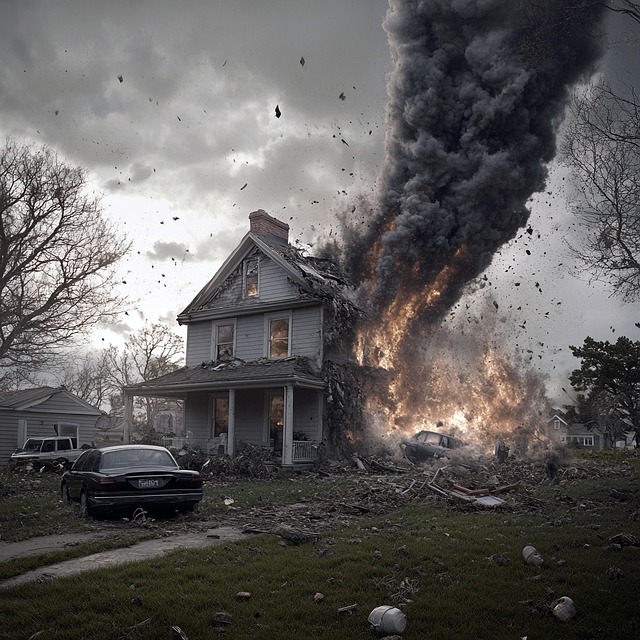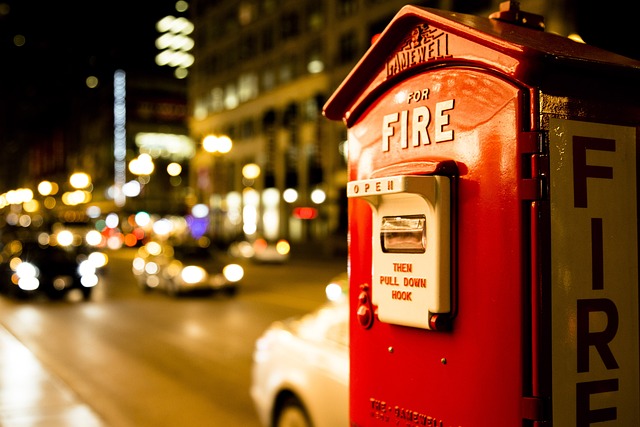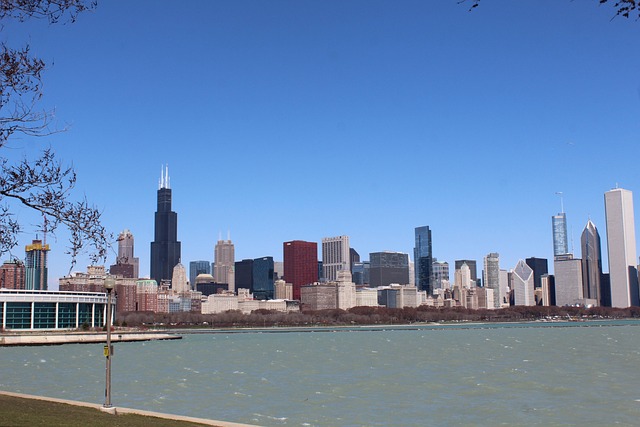The Chicago real estate market presents both opportunities and challenges, especially when selling a house with fire damage. With high housing demand driven by urban lifestyle appeal, investors can profit from rehabilitating undervalued properties in affected areas. Selling a damaged home requires understanding strict building codes, engaging specialized contractors for repairs, and transparently documenting the property's history to attract genuine buyers. Strategic marketing, focusing on potential over past, using digital platforms and local advertising with keywords like "sell a house with fire damage Chicago", is key. Navigating legal and financial aspects, including Illinois disclosure laws and accurate budgeting for restoration, is essential for successful sales in this competitive market.
“Chicago’s real estate landscape offers unique opportunities for investors, but navigating its intricacies requires a keen understanding. This comprehensive guide delves into the dynamics of the city’s market, focusing on the challenges and potential rewards of investing in properties affected by fire damage. From identifying trends to mastering marketing strategies, we equip investors with insights on ‘selling a house with fire damage Chicago’ successfully. Additionally, we explore legal and financial considerations, ensuring readers are armed with knowledge for navigating this specialized niche.”
- Understanding the Chicago Real Estate Market: Trends and Opportunities for Investors
- Navigating Fire Damage: Challenges and Considerations for Sellers in Chicago
- Strategies for Attracting Buyers: Marketing and Renovation Tips for Damaged Properties
- Legal and Financial Aspects: What Investors Need to Know About Selling Fire-Damaged Homes in Chicago
Understanding the Chicago Real Estate Market: Trends and Opportunities for Investors

The Chicago real estate market is known for its dynamic nature, presenting investors with a mix of opportunities and challenges. Understanding the current trends is crucial for any investor looking to navigate this competitive space. In recent years, Chicago has experienced a steady growth in demand for housing, driven by a strong job market and an appealing urban lifestyle. This increased demand has led to a robust real estate landscape, where properties, especially those in prime locations, often see high sales prices.
One notable trend that can offer unique opportunities is the rise of investment in areas affected by fire damage. While selling a house with fire damage Chicago might seem daunting, investors who specialize in such properties can capitalize on the chance to acquire undervalued real estate. These opportunities often arise from rehabilitation projects, where investors can restore and renew damaged properties, adding value and contributing to the city’s overall revitalization efforts.
Navigating Fire Damage: Challenges and Considerations for Sellers in Chicago

Selling a house with fire damage in Chicago can present unique challenges for homeowners. The city’s stringent building codes and safety regulations mean that repairs must meet exacting standards, which can be costly and time-consuming.
Navigating the process requires careful consideration. Sellers should begin by assessing the extent of the damage, consulting with contractors experienced in fire restoration to understand the scope of work needed. Obtaining accurate estimates for repairs, documenting the damage through photography, and understanding the insurance claims process are crucial steps before putting the property on the market. Additionally, being transparent about the fire damage history is essential to attract trustworthy buyers and facilitate a smooth sale.
Strategies for Attracting Buyers: Marketing and Renovation Tips for Damaged Properties

In the competitive Chicago real estate market, especially when dealing with properties that have experienced fire damage, attractive marketing and strategic renovations are crucial to attracting buyers. The first step is to highlight the potential of the property rather than focusing on the past damage. Emphasize the location, neighborhood amenities, and any positive features that remain intact. Utilize high-quality photography and virtual tours to showcase the space and design possibilities.
Renovation strategies should prioritize areas visible to prospective buyers. Address structural repairs and safety concerns first. Then, focus on updating key spaces like the kitchen and bathrooms, which can significantly enhance appeal. Consider modernizing fixtures, appliances, and finishes to cater to buyers’ preferences while keeping costs manageable. A well-planned marketing strategy that includes digital platforms and local advertising will help reach a wider audience, especially with relevant keywords like “sell a house with fire damage Chicago” to ensure the right potential buyers are attracted.
Legal and Financial Aspects: What Investors Need to Know About Selling Fire-Damaged Homes in Chicago

When investors consider selling a house with fire damage in Chicago, they must navigate a series of legal and financial complexities. In Illinois, specific regulations govern the disclosure and remediation of fire damage during real estate transactions. Investors are required to disclose any known issues related to fire damage, even if repairs have been made, to ensure transparency and prevent future disputes. Failing to do so can result in legal repercussions, including liability for undisclosed damages.
Financially, assessing and budgeting for the necessary repairs is a crucial step before listing a fire-damaged property. Investors should secure accurate cost estimates from qualified contractors specializing in fire restoration. This meticulous process involves not only repairing structural damage but also addressing potential mold growth, which can significantly increase costs. Proper financial planning and understanding of these legal obligations are essential for investors navigating the sale of a house with fire damage in Chicago’s competitive market.
For real estate investors in Chicago, navigating the complexities of selling homes with fire damage presents both challenges and opportunities. By understanding the local market trends, implementing effective marketing strategies, and staying informed about legal and financial aspects, investors can successfully navigate this unique segment. Remember that, while fire-damaged properties may require extra effort, they can also offer attractive deals for those willing to invest in renovation or rehabilitation. In the competitive Chicago real estate landscape, recognizing and capitalizing on these opportunities is key to achieving lucrative returns.






